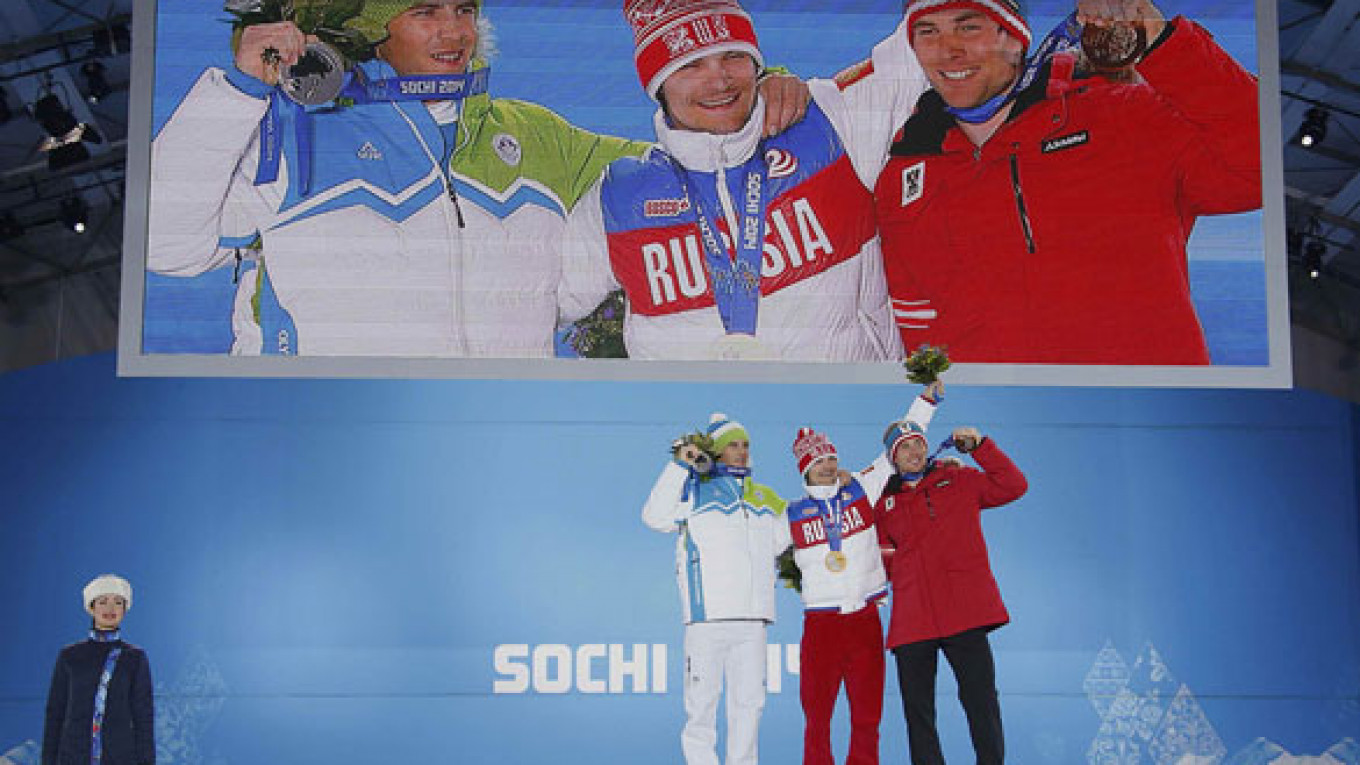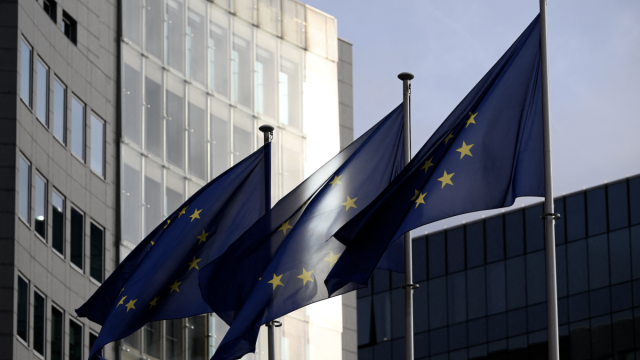ROSA KHUTOR — Two decades after it last led the medals table, Russia triumphantly captured the top spot at its first home Winter Olympics — albeit with a big contribution from two "adopted Russians" — and can look forward to a Sochi-fueled boost in 2018.
With the collapse of the Soviet Union, a dominant Olympic power for four decades, Russia lost all its mountain training bases — a point highlighted by President Vladimir Putin when he presented Sochi's bid in 2007.
So staging the Games has not only yielded a hugely increased medal count after a dismal 11th place in Vancouver in 2010. It also leaves behind a cluster of world-class venues that should hugely benefit the next generation of winter athletes.
With a final tally of 13 golds, 11 silvers and nine bronzes, Russia topped the table for the first time since 1994, an important achievement for a country that since Soviet days has sought pride and prestige through sport.
In the doll-like figure of 15-year-old Yulia Lipnitskaya, who stole the show in the gold medal-winning figure skating team, it produced a new Olympic darling who melted hearts at home and around the world. Even Lipnitskaya was upstaged in the women's individual event by fellow Russian teenager Adelina Sotnikova, who controversially beat South Korea's "Ice Queen" Kim Yuna to take gold, igniting a furor over the judging.
True, several of the home golds came from "imports," with South Korean-born Viktor Ahn winning the 500 meter and 1,000 meter short-track speed skating and leading the 5,000 meter relay team to victory, as well as taking individual bronze in the 1,500 meter.
U.S.-born Vic Wild, who switched his allegiance after marrying a Russian, became the first snowboarder to win two titles at a single Olympics, adding parallel slalom gold to his giant slalom victory.
On the other hand, Russians could claim a little piece of "Ipod," aka Iouri Podladtchikov, the snowboard halfpipe gold medallist who was born in Moscow, competes for Switzerland, speaks fluent Russian and described winning in his fatherland as "beautiful."
There was disappointment in ice hockey when, in a clash with echoes of the great Cold War Olympic battles, the men's team lost to the U.S. in a shootout after having a goal disallowed by the American referee — a moment that prompted Putin supporters and opponents to briefly unite in outrage on Twitter. A further defeat, to Finland, saw the Russians eliminated from the competition in the quarter-final. Captain Pavel Datsyuk summed up the mood of a deflated nation when he told reporters: "Inside, I am absolutely empty."
At the Iceberg Skating Palace, the elfin Lipnitskaya hit the heights in the team event but crashed to the ice in the short program, and Evgeni Plushenko ended his epic career on a sad note, pulling out of the men's individual event at short notice with an injury he said was "like a knife in my back."
Tatyana Volosozhar and Maxim Trankov took the pairs title to add to Sotnikova's triumph in one of the showpiece events of the Games. Elsewhere, Russians picked up two golds, five silvers and two bronzes in biathlon and cross-country skiing, where Alexander Legkov led a clean sweep for the home team in the men's 50 kilometer on Sunday. But they were way off the pace in alpine skiing, where their highest result in any event was 14th. They fared even worse at the RusSki center, venue for the ski jump and Nordic combined, where their best showing was Irina Avvakumova's 16th in the inaugural women's normal hill.
In all of these sports, though, Russia stands to reap future benefits from its newly built facilities in the Caucasus mountains above Sochi.
The Laura Cross-Country Ski and Biathlon Center will become a training base for the Russian team, while skiers and ski jumpers are also looking forward to racking up fewer air miles. The benefits of training at a brand new state-of-the-art facility were evident from the results at the Sanki sliding centre, where Russians have been able to prepare for the past two years instead of having to travel to Latvia.
In the skeleton, Alexander Tretiakov took gold for the men and Yelena Nikitina won a bronze, while the lugers won two silvers.
It was left to Alexander Zubkov, winning driver of the two-man bobsleigh, to round off a memorable home Olympics by steering to victory in the four-man competition on the final afternoon of the Games.
A Message from The Moscow Times:
Dear readers,
We are facing unprecedented challenges. Russia's Prosecutor General's Office has designated The Moscow Times as an "undesirable" organization, criminalizing our work and putting our staff at risk of prosecution. This follows our earlier unjust labeling as a "foreign agent."
These actions are direct attempts to silence independent journalism in Russia. The authorities claim our work "discredits the decisions of the Russian leadership." We see things differently: we strive to provide accurate, unbiased reporting on Russia.
We, the journalists of The Moscow Times, refuse to be silenced. But to continue our work, we need your help.
Your support, no matter how small, makes a world of difference. If you can, please support us monthly starting from just $2. It's quick to set up, and every contribution makes a significant impact.
By supporting The Moscow Times, you're defending open, independent journalism in the face of repression. Thank you for standing with us.
Remind me later.






